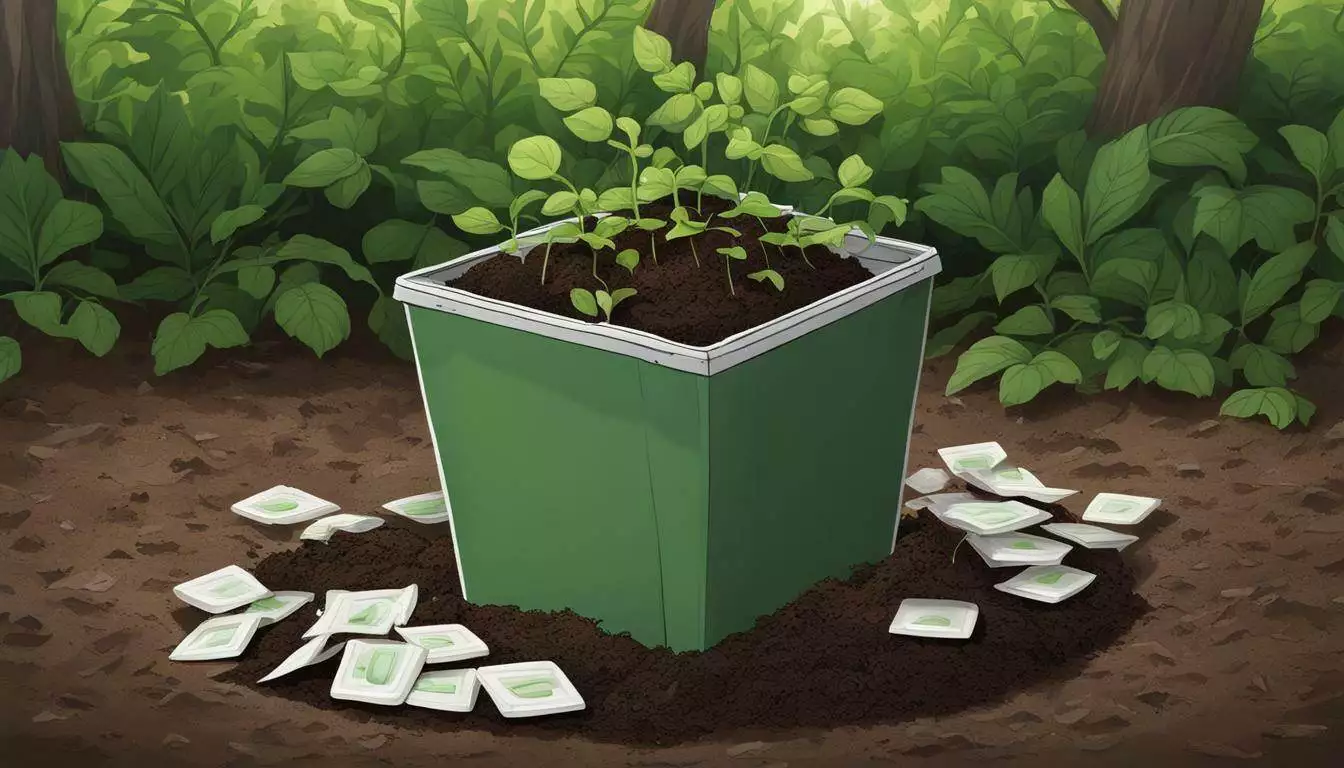Are you wondering if paper plates can be composted? Discover the eco-friendly truth and learn how to make sustainable choices for a greener future.
Compostable paper plates are eco-friendly alternatives to disposable plastic or plastic-coated plates. They can break down in industrial composting facilities and biodegrade, providing natural fertilizer for soil remediation. Compostable plates are made from various materials, such as bagasse, bamboo, palm leaves, and vegetable starches.
Bagasse is derived from sugar cane, bamboo plates are made from the protective outer layer of the bamboo stalk, palm leaf plates are made from fallen palm leaves, and vegetable starch plates are made from corn and potatoes. These materials are collected, processed, and molded into the shape of plates without the use of harmful chemicals or binders.
Compostable plates can be composted in backyard compost piles by cutting them into small pieces and ensuring a balance of green and brown materials in the pile. They should not be put in curbside recycling bins as they are not recyclable. Organic waste that ends up in landfills can produce methane gas, a potent greenhouse gas.
However, not all paper plates are compostable or recyclable. Plates with plastic coatings or chemical treatments cannot be easily recycled and often end up in landfills. It’s important to check the labels and dispose of paper plates accordingly to minimize their environmental impact.
Reusable options, such as ceramic plates or plates made from stone, recycled glass, or stainless steel, are always more eco-friendly choices.
Key Takeaways:
- Compostable paper plates can break down in industrial composting facilities and biodegrade, providing natural fertilizer.
- Compostable plates are made from materials such as bagasse, bamboo, palm leaves, and vegetable starches.
- Not all paper plates are compostable or recyclable. Plates with plastic coatings or chemical treatments should be disposed of properly.
- Paper plates should not be put in curbside recycling bins and should be composted instead.
- Reusable options like ceramic, stone, recycled glass, or stainless steel plates are more eco-friendly choices.
Composting Paper Plates: A Step-by-Step Guide
Ready to turn your discarded paper plates into nutrient-rich compost? Follow these simple steps to compost them effectively and reduce waste in your kitchen.
“Cutting your paper plates into smaller pieces before composting them can help speed up the decomposition process,” advises composting expert Lisa Green. “Smaller pieces break down quicker and create more surface area for beneficial microorganisms to work their magic.”
“To maintain a proper balance in your compost pile, it’s important to include both green and brown materials,” says Green. “Paper plates, being high in carbon, are considered brown materials. To balance this, you can add green materials such as kitchen scraps, like fruit and vegetable peels, or grass clippings from your yard.”
Remember, composting is all about creating the right environment for decomposition to occur. Green suggests turning your compost pile regularly to provide oxygen and ensure even decomposition. Additionally, keep your compost pile moist, but not soggy, to promote bacterial activity.
By following these simple steps, you can transform your paper plates into nutrient-rich compost that will help nourish your garden and reduce the amount of waste you send to the landfill.
Conclusion
In conclusion, compostable paper plates offer a sustainable solution to disposable tableware, while plastic-coated plates and other non-compostable options contribute to environmental harm. By making informed choices and composting paper plates properly, we can play our part in reducing waste and protecting the planet.
Compostable paper plates are made from materials like bagasse, bamboo, palm leaves, and vegetable starches, which biodegrade and break down in industrial composting facilities. These plates are produced without the use of harmful chemicals or binders and can be composted in backyard compost piles by cutting them into small pieces and maintaining a balance of green and brown materials.
It’s important to note that not all paper plates are compostable or recyclable. Plates with plastic coatings or chemical treatments cannot be easily recycled and often end up in landfills, contributing to the production of methane gas, a potent greenhouse gas. Therefore, checking the labels and disposing of paper plates accordingly is crucial in minimizing their environmental impact.
For those looking for more eco-friendly options, reusable tableware made from materials like ceramic, stone, recycled glass, or stainless steel are always a great choice. By opting for these reusable alternatives, we can further reduce our reliance on single-use items and contribute to a more sustainable future.
FAQ
Can you compost paper plates?
Yes, compostable paper plates can be composted in industrial composting facilities or backyard compost piles. They are made from materials like bagasse, bamboo, palm leaves, and vegetable starches, which can break down and biodegrade, providing natural fertilizer for soil remediation.
How do compostable paper plates differ from other paper plates?
Compostable paper plates are made from sustainable materials without the use of harmful chemicals or binders. They can be composted, while other paper plates with plastic coatings or chemical treatments cannot be easily recycled and often end up in landfills.
Can you recycle paper plates?
No, paper plates should not be put in curbside recycling bins as they are not recyclable. Instead, they can be composted or disposed of in waste bins.
Can compostable paper plates be composted in backyard compost piles?
Yes, compostable paper plates can be composted in backyard compost piles. It is recommended to cut them into smaller pieces for faster decomposition and ensure a balance of green and brown materials in the pile.
Why is it important to compost paper plates?
Composting paper plates helps divert organic waste from landfills, reducing methane gas production, a potent greenhouse gas. It also allows the plates to biodegrade and provide natural fertilizer for soil remediation.

